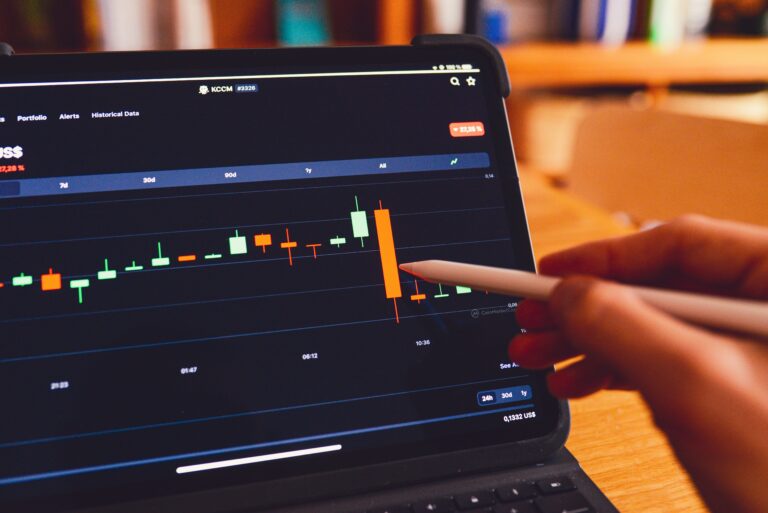Cryptocurrency mining has evolved from a small, hobbyist activity into a highly competitive and potentially lucrative industry. In the United States, mining digital currencies like Bitcoin, Ethereum (pre-merge), and altcoins is legal. However, it must be done in compliance with federal, state, and local regulations. Understanding how to legally mine crypto in the U.S. in 2025 is essential for avoiding legal trouble and maximizing profitability.
What Is Crypto Mining?
Crypto mining is the process of validating transactions on a blockchain network by solving complex mathematical problems. Miners use powerful computers to compete for the chance to add a new block to the chain. In return, they earn rewards in the form of newly minted coins and transaction fees.
This decentralized verification mechanism is crucial to the security and functionality of blockchains that rely on Proof of Work (PoW), like Bitcoin. As the network grows, so does the difficulty of mining, requiring increasingly sophisticated equipment, higher electricity usage, and careful legal structuring.
Is Crypto Mining Legal in the U.S.?
Yes, cryptocurrency mining is legal in all 50 states. However, legality doesn’t mean it’s unregulated. While there is no federal ban on mining, various laws apply to aspects of the process, including environmental regulations, energy usage, zoning laws, business registration, and tax compliance.
Some states are more favorable than others. For example, Texas and Wyoming have passed crypto-friendly legislation that supports mining operations. In contrast, states like New York have placed moratoriums or restrictions on mining due to environmental concerns.
Legal Steps to Start Mining in the U.S.
Register as a Business Entity
If you’re mining at a professional level, especially with multiple rigs or hosting facilities, you should register as a business. This could be a sole proprietorship, LLC, or corporation. Doing so separates your personal and business finances, gives you access to deductions, and improves compliance.
Register your business with your state’s Secretary of State office. You may also need a local business license or permit depending on your city or county regulations.
Follow Local Zoning and Noise Regulations
Large-scale mining operations generate heat and noise. Some areas have zoning restrictions that prohibit commercial mining in residential or certain commercial zones. Before starting, check with your city’s planning or zoning department.
Compliance with local ordinances regarding ventilation, soundproofing, and fire safety may also be required if you’re running multiple machines.
Comply with Environmental and Energy Regulations
Mining consumes a significant amount of electricity. In some states, high energy usage triggers additional environmental oversight. You may need to report your usage to the state utility commission or obtain a special industrial usage permit.
Using renewable energy sources such as solar or hydroelectric power can reduce costs and regulatory scrutiny. Some states even offer incentives for sustainable mining practices.
Taxation of Mined Cryptocurrency
In the U.S., the IRS considers mined cryptocurrency as taxable income. The fair market value of the coins at the time they’re mined must be reported as ordinary income. If the coins are later sold or traded, capital gains taxes may also apply.
Maintaining detailed records of mining rewards, expenses, and equipment depreciation is crucial. Crypto tax software can help you generate IRS-compliant reports and keep accurate documentation throughout the year.
You may also be required to make estimated quarterly tax payments to avoid penalties. If your mining operation is registered as a business, you may be able to deduct electricity, hardware, and even home office costs.
Choosing the Right Equipment
In 2025, most serious miners use ASIC (Application-Specific Integrated Circuit) hardware for coins like Bitcoin, which require high-speed, efficient computation. For other coins like Kaspa or Litecoin, GPU rigs are still viable.
Legal mining doesn’t only mean regulatory compliance—it also means protecting your equipment and ensuring network safety. Avoid buying mining rigs from unverified sources and always secure your operation against cyber threats.
You should also verify that your electrical setup meets safety codes. Overloaded circuits can cause fires, and insurance may not cover damage caused by illegal or improperly set up rigs.
Internet and Cybersecurity Considerations
Crypto miners must protect both their machines and the networks they operate on. Hackers often target mining rigs to steal coins or hijack computing power. Setting up firewalls, VPNs, two-factor authentication, and keeping your software updated is essential for legal and secure operations.
In case of a data breach, there may be reporting requirements under U.S. data privacy laws. Protecting customer or partner data (if applicable) should also be part of your compliance plan.
State-Level Mining Policies in 2025
Crypto-Friendly States
Texas remains a hub for mining due to its deregulated power grid and crypto-supportive laws. The state has invited mining companies with low-cost energy deals and minimal red tape. Wyoming is another crypto leader, offering legal frameworks that recognize digital assets and support mining operations.
Restrictive States
New York has placed a temporary ban on certain types of crypto mining, especially those that rely on fossil fuel-powered energy. California and Washington have strict energy efficiency laws and may impose high fees for industrial electricity consumption.
Federal Outlook
While no national mining ban exists, there is growing interest among lawmakers in regulating crypto’s environmental impact. In 2025, discussions are ongoing about requiring large-scale miners to disclose emissions and energy consumption. Staying informed of proposed legislation is vital.
Mining Pools and Legal Responsibility
Most individual miners today join mining pools—groups of miners who combine resources to increase the chance of earning rewards. It’s important to choose a U.S.-compliant pool, especially one that provides proper payout documentation for tax purposes.
If the pool is based abroad, your earnings might raise red flags with the IRS or FinCEN. Keeping clear records of wallet addresses, transaction IDs, and value received is essential.
Insurance and Liability Protection
Crypto mining carries financial and physical risks. Fires, theft, and equipment failure can lead to major losses. Business insurance that covers property damage, cyberattacks, and liability is highly recommended.
Mining without proper insurance can not only risk your investment but also violate building or business codes, especially if you’re renting or leasing space.
Conclusion
Mining cryptocurrency in the United States is legal, but it is not unregulated. Whether you’re a hobbyist miner or running a full-scale operation, understanding and following the law is essential. From business registration and tax compliance to zoning and energy regulations, every aspect must be addressed to avoid legal complications.
With the right knowledge, preparation, and ethical practices, mining in the U.S. can still be a profitable and legitimate part of the digital economy in 2025. As regulatory frameworks continue to evolve, staying compliant is not just the safe path—it’s the smart one.



